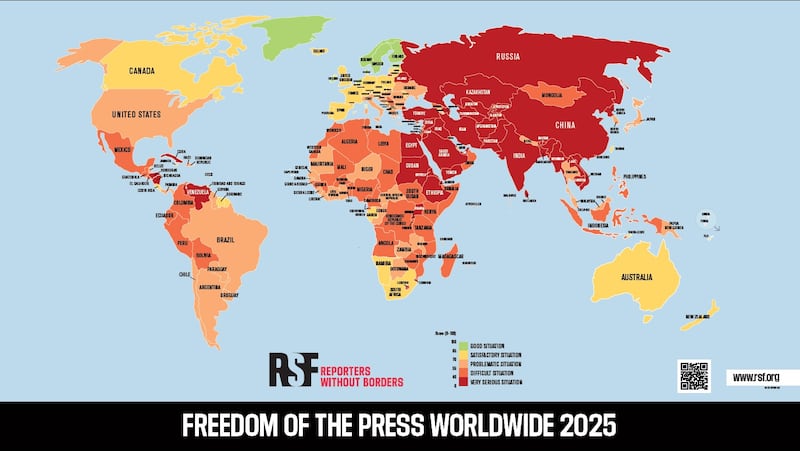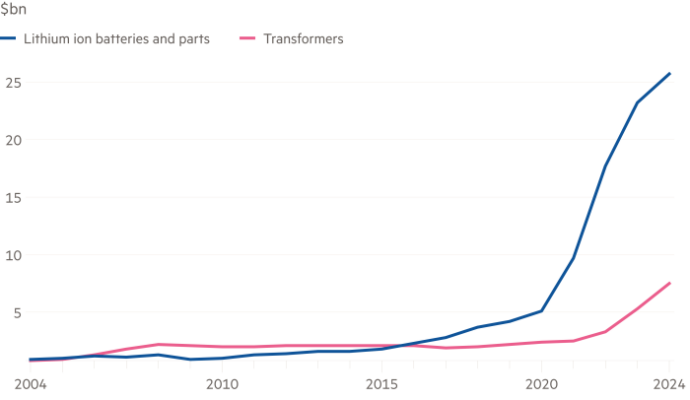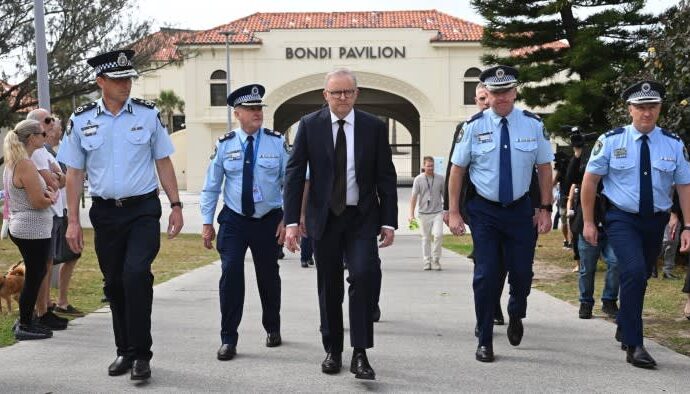BANGKOK and WASHINGTON – Press freedom is at its lowest ebb globally in more than two decades, Reporters Without Borders said Friday, as economic pressures shake the foundations of journalism.
The advocacy group, also known as Reporters sans frontières or RSF, said it classified the global state of press freedom as “difficult” for the first time since it began compiling its media index in 2002.
“Without economic independence, there can be no free press,” RSF said in a statement announcing the 2025 iteration of the press freedom index.
“When news media are financially strained, they are drawn into a race to attract audiences at the expense of quality reporting, and can fall prey to the oligarchs and public authorities who seek to exploit them,” it said.
News outlets are shutting down in nearly a third of the 180 countries included in the index, RSF said. Media in even relatively highly ranked nations such as New Zealand and South Africa are grappling with challenges of financial viability.
Tech companies such as Google, Meta and Apple are absorbing an ever growing share of advertising revenue at the same time as they contribute to the spread of manipulated and misleading content, according to RSF.
President Donald Trump’s second term has delivered an additional blow, the group said, by ending funding for U.S. public media including Voice of America and Radio Free Asia that reported on countries where authoritarian governments suppress independent voices.
The bottom three spots in the 2025 press freedom index were occupied by China, North Korea and Eritrea. The top three countries, from first to third respectively, were Norway, Estonia and the Netherlands.
China dropped six places from the previous year to 178th in a worsening of an already dire picture.
“China right now is the biggest jailor of journalists in the world,” said Aleksandra Bielakowska, RSF’s Asia Pacific advocacy manager.
“They really managed to arrest all the people that were courageous enough and who still wanted to report on issues in the ground,” she told RFA.

The erosion of what was limited press freedom in China began more than a decade ago and accelerated under President Xi Jinping, Bielakowska said, as he and loyalists concentrated state power in his person.
The media freedom situation in China is now almost akin to the total control over information exercised by North Korea’s dynastic government, she said.
The ability of foreign media to operate in China has also become heavily circumscribed.
Some 15 years ago foreign reporters could go to regions that chafed against Beijing’s rule such as Xinjiang and Tibet, but it is now impossible unless as part of a government-supervised propaganda trip, Bielakowska said.
“Not just an authoritarian country, but a really totalitarian system where nobody can speak up, nobody can report on any issues,” she said. “And reporters can only work as the party’s propaganda.”

China’s aggressive suppression of independent media is increasingly emulated in Southeast Asia and elsewhere.
Cambodia, a Beijing ally in Southeast Asia, dropped 10 places in the index to 161st.
Its continued slide reflected persecution and violence against reporters including the fatal December 2024 shooting of environmental journalist Chhoeung Chheung, who was investigating illegal logging.
A prominent Cambodian journalist, Mech Dara, who drew attention to corruption and human rights abuses, left the profession after being detained for several weeks last year.
“There’s been many journalists like this,” said Bielakowska. “For Mech Dara, he decided to give up on journalistic work despite being one of the most valued journalists inside of Cambodia because he could not continue working under this type of pressure.”
Edited by Mike Firn and Taejun Kang.


